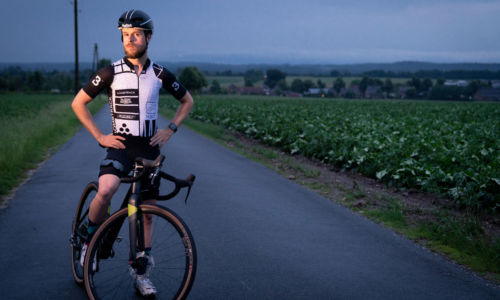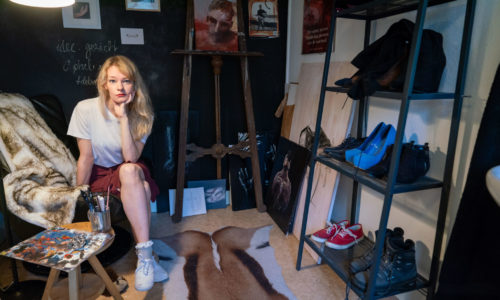Summer interview (3): ambassador Ardi Stoios-Braken in Pakistan
-
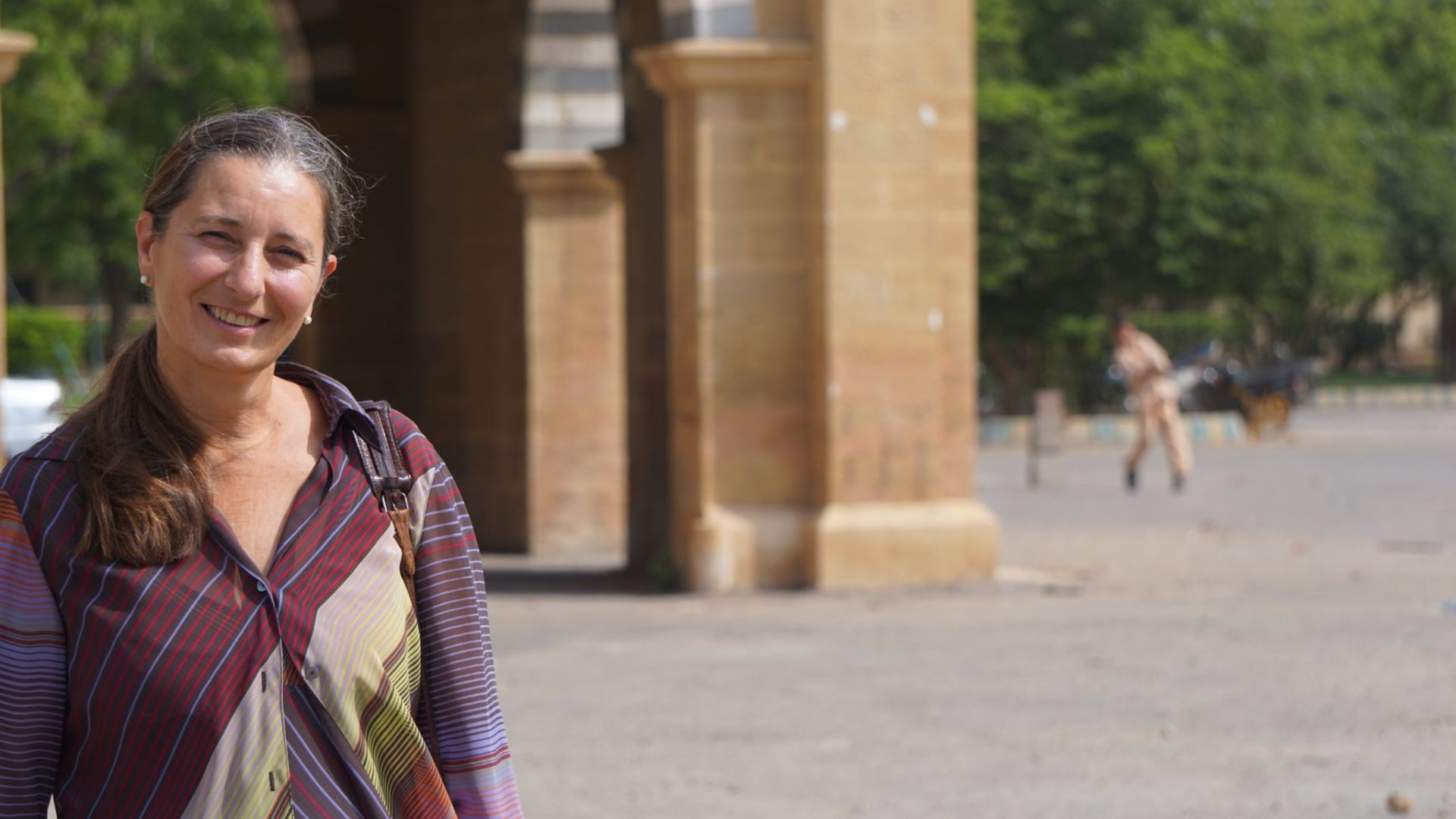 Ardi Stoios-Braken in Karachi. Photo: Annemarie Haverkamp
Ardi Stoios-Braken in Karachi. Photo: Annemarie Haverkamp
Ardi Stoios-Braken (52) studied Public Administration and Development Studies in Nijmegen. In September she was appointed Dutch Ambassador to Pakistan. A woman alone – her family stayed home – in a conservative Islamic republic where murder and kidnap are the order of the day. What’s that like? VOX joined her on a working visit in the world’s most dangerous city.
‘I could never get used to Karachi’s smell.’ Ardi Stoios-Braken looks out of the window of her armoured car. Buffalos by the side of the road, up to their bellies in the water of a canal that’s also a sewage outlet. The banks are formed from mountains of waste. Children stroll along the stinking heaps, looking for anything of value.
‘I’ve never felt afraid here yet’
Traffic in this harbour city of more than twenty million inhabitants (most of them extremely poor) is complete chaos. Rickshaws, busses, mopeds and donkey carts race each other in rows five, sometimes ten deep. Police officers hang out of the open car in front of us, gesturing wildly with their hands and guns to clear out of the way. These full-bearded men with their black head kerchiefs are our escort. Their job is to ensure that the Dutch Ambassador gets to her meeting safely. Last year, the English newspaper The Independent declared Karachi the most dangerous city in the world. All of Pakistan suffers from a poor image – the inhospitable border area with Afghanistan was issued a negative travel advice because of the Taliban and Al-Qaeda. Terrorism, murder, disappearance and rape are regular features in the columns of national newspapers.
On the back seat, Stoios-Braken quickly puts the final touch to her lipstick. The programme for today includes a meeting with the Governor of Sindh Province, and she looks impeccable. Colourful ankle-long dress, her long hair swept back into a pony tail. And no, no headscarf.
The reception is at the Governor’s residence, a palatial building that was once home to the first Governor and founder of Pakistan, Mohammad Ali Jinnah (a pacifist). Servants in stiff white uniforms serve coffee and snacks, as the Governor sits enthroned in a leather chair and politely tells Stoios-Braken how honoured he is to receive her. She’s been Dutch Ambassador to Pakistan for eight months, but this is the first opportunity they’ve had to meet one another. ‘He’s an important man in this region,’ she explains.
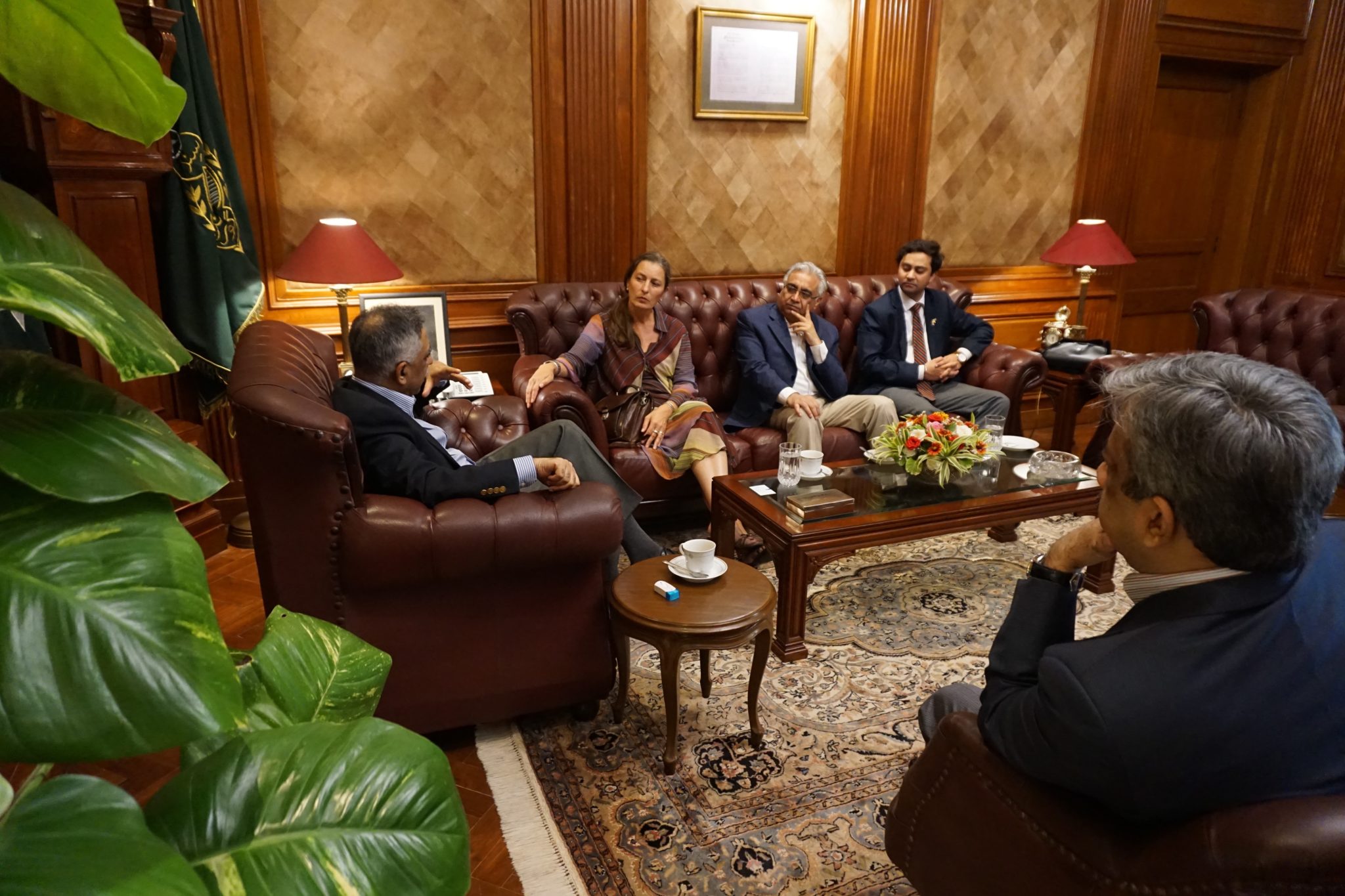
Just as she is an important woman in this region. Karachi may stink, but it has a large international harbour, and is a sea entry point into Asia. And whoever thinks of water, thinks of the Netherlands. ‘Karachi is extremely interesting for our maritime sector. A number of companies with expertise in water are already active here.’ The Netherlands is one of Pakistan’s biggest European trade partners. Friesland Campina is already here, and Karachi’s first Spar supermarket has opened its doors.
In her meeting with the Governor, she emphatically asks him to remember the Netherlands when it comes to agricultural collaboration. ‘Flower bulbs, potatoes,… we can do it all.’
King’s Day
The previous evening, Ardi Stoios-Braken flew in to the coast from her home in Islamabad with ten kilograms of Beemster cheese under her arm. She’s in Karachi for a three-day working visit. One of the highlights is the King’s Day celebration on 9 May. The Dutch King may have celebrated his birthday a while ago, but what Pakistani citizen has Willem-Alexander on their birthday calendar? More than two hundred guests are expected: business relations, NGOs and the handful of Dutch citizens who live in Karachi. All of them people the Ambassador needs to know in order to promote Dutch interests. The host doesn’t have to cut up the cheese herself; the chefs of the hotel where the reception is held will take care of this – although not before the cheese has been screened of course. Everything that enters the premises of business or hotels here must be run through the scanner first. Every time the Ambassador returns to the Marriott Hotel after an appointment, the underside of her car is checked for explosives and sniffed by dogs.
‘I don’t think much about it,’ says Stoios-Braken speaking about the intensive security measures. ‘We have a special team at the embassy just for this purpose.’ Before she goes on a visit, the embassy people determine whether the trip is safe. If there are any tensions in the area or district, she cancels her trip. Much more often, the authorities simply don’t give her permission. ‘I’ve never felt afraid here yet.’

The situation in Pakistan does limit her freedom. She can only cycle freely within the walls of the compound where she’s lived since September. Outside she has to rely on a car with a driver. The safety protocol forbids her to drive. ‘An American diplomat recently caused an accident here. It was so sad, someone died. This American really brought the wrath of the local people upon himself. Now he’s been expelled from the country.’
It’s out of the question for her as a woman to walk on the street alone. Women are rarely seen on the street. If you spot one, chances are she’ll be wearing a veil. So it’s all the more remarkable that the Ministry of Foreign Affairs should have chosen a woman for this post.
‘I’m usually the only woman in a group’
‘It was a deliberate decision,’ explains Stoios-Braken as we take a tour of the Governor’s historical residence after the meeting. ‘The Ministry currently employs 30% of top female diplomats, and their goal is 50-50.’ The Netherlands also wants to set an example by being represented by women abroad.
Does it work? Stoios-Braken thinks so. ‘I’m usually the only woman in a group. I try to draw attention to it in the form of jokes.’
That afternoon, she is indeed the only woman among eleven male Pakistani dignitaries attending a press conference about an agricultural fair where Dutch companies will also have the opportunity to introduce themselves. ‘Good afternoon, dear ladies and (she smiles and looks around the room) foremost gentlemen,’ Her Excellency says at the start of her speech, after the chanted prayer and the National Anthem. More than twenty television cameras zoom in on her.
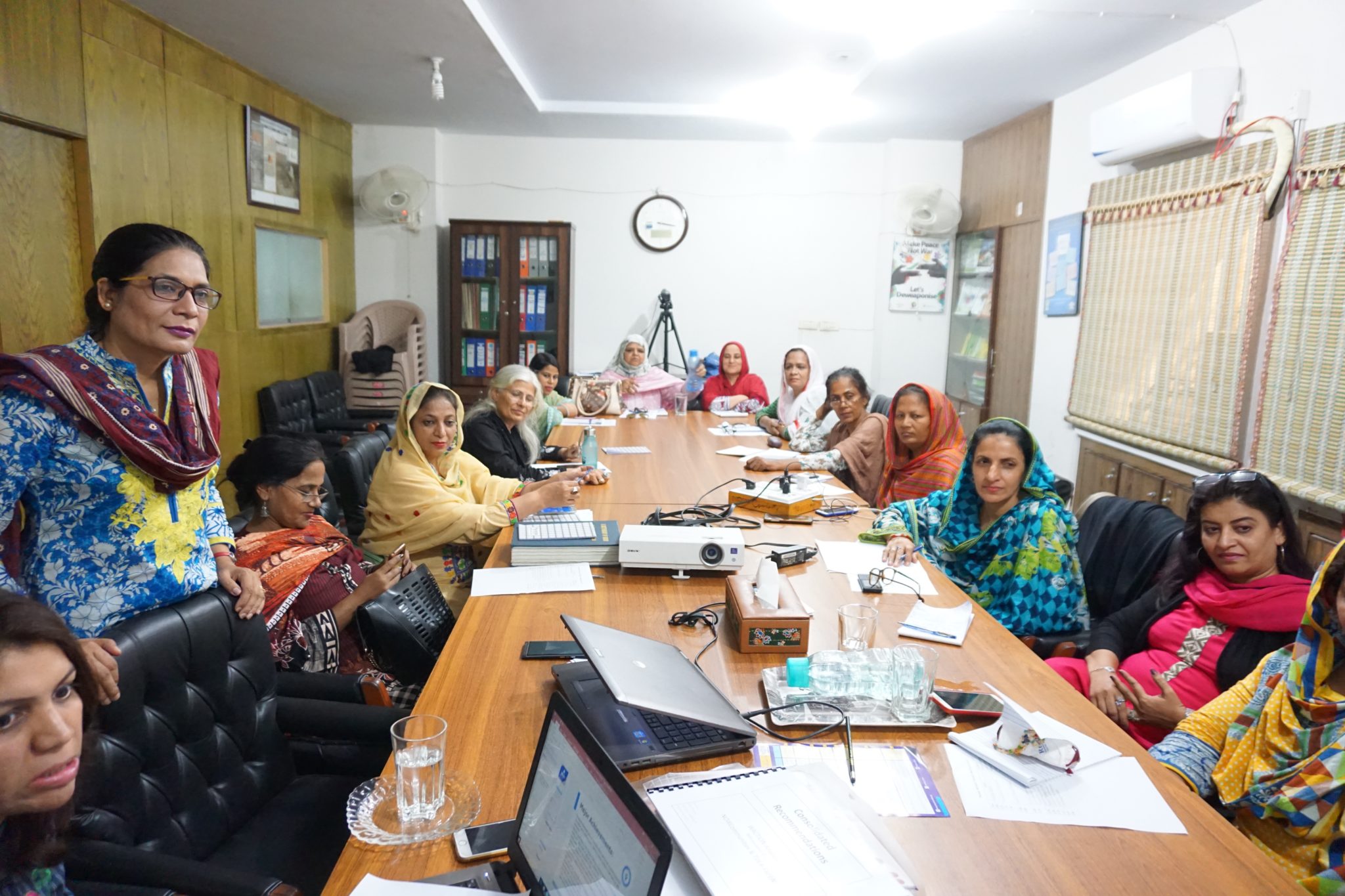
The fact that women are nearly non-existent on the Pakistani labour market is a huge problem. ‘Most of them stay at home. You want a better life for these women, but including women is also a precondition if the economy is to succeed,’ she explains. It is true that the economy is growing, but the fact that such a large proportion of the population is not contributing hinders development.
Pakistan is one of the countries with the highest percentage of illiteracy in the world: 45% of people can’t read or write, and the percentage is higher still among women (58%) (2012 figures). Parents would rather marry their daughters off than send them to school. And even if families approve of schooling, transport is an obstacle. How are girls supposed to get to school safely? Sexual violence is rampant and parents often simply don’t dare to let their daughters go out. The same problem occurs when educated young women look for a job. Stoios-Braken: ‘For women who have completed a university degree, you can’t take it for granted that they will continue to work once they get married.’ The Global Gender Gap Index of the World Economic Forum charts gender inequality in 144 countries and Pakistan ranks in the second to last place.
The unavoidable question is: What is an emancipated Brabant woman doing in the conservative Islamic Republic of Pakistan?
Lonely
In a room behind an imposing fence nineteen women are gathered around a conference table. All eyes are on the Ambassador. ‘I grew up in a small village,’ she explains. ‘My mother was a housewife and she cleaned other people’s houses for a living. Sometimes I would go and pick her up after school. She wasn’t always treated kindly. I remember one of her bosses once making fun of me because I had a local accent. I thought it was so unfair. This experience motivated me to show that I too, could achieve something if I wanted to.’
Her audience nods in agreement. The listeners form a network of Pakistani women who want to make their voice heard. They are human rights activists, health workers and entrepreneurs who share a single mission: to stand up for women’s rights. Stoios-Braken encourages and supports them. She is unable to give out funds to support their initiatives, because former development aid has been largely dismantled. The policy now is to stimulate the local population to become self-sufficient. From aid, to trade.
As the armoured car dives once again into the hooting traffic chaos, the Ambassador repeats that the seed of her combat against injustice was planted in her native Brabant village of Liempde. ‘It’s true that I’m something of an idealist. I believe we should take care of others, and try within our means to make the world a slightly better place.’
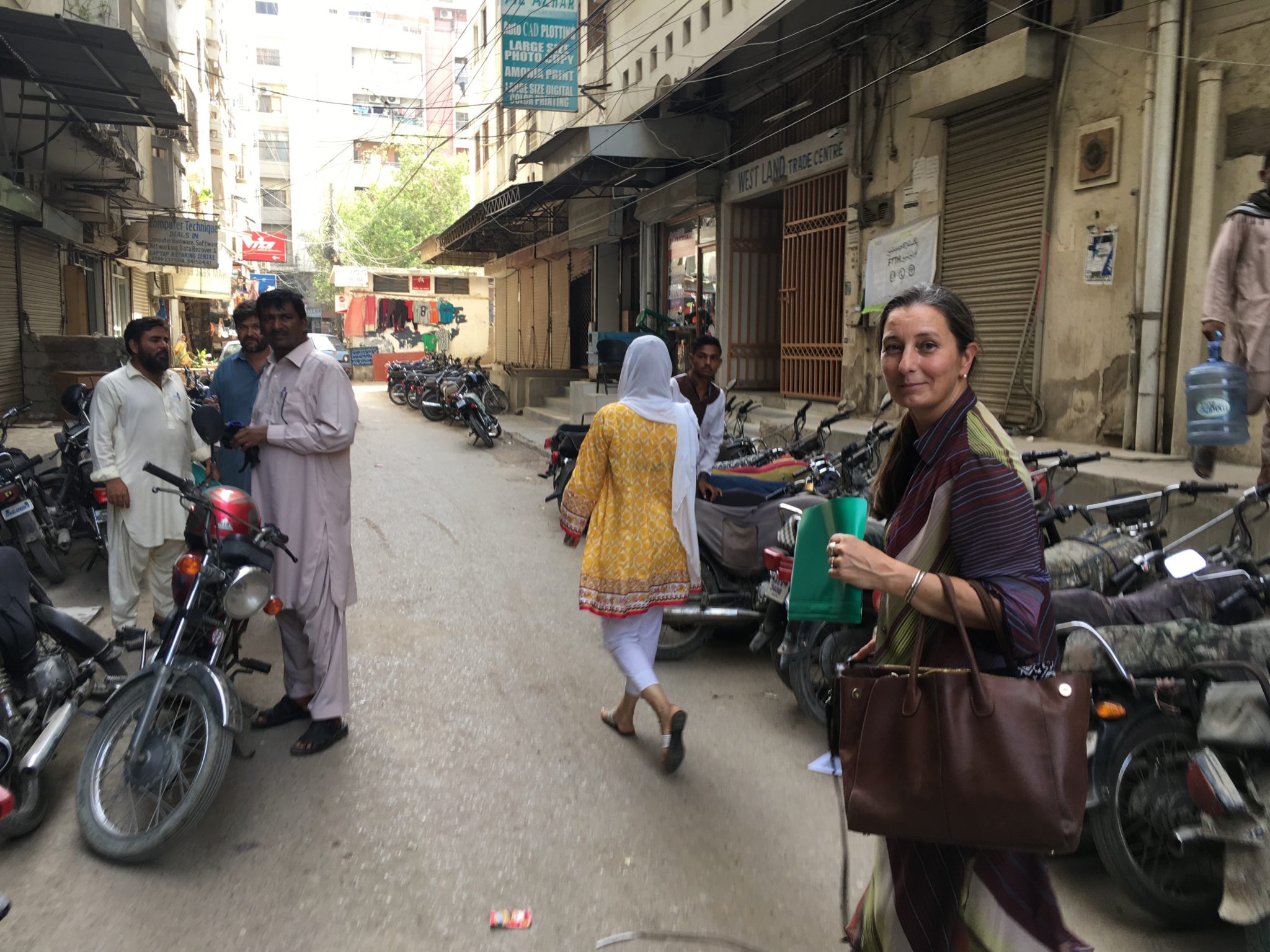
She was the first and only one of a family of four to go to university. She chose Nijmegen – a big step for a girl from a small village. Stoios-Braken enrolled for Public Administration and Development Studies. She followed courses with iconic lecturers like Gerrit Huizer and Leon Wecke. In the 1990s Nijmegen was a left-wing stronghold. ‘I was active in the Socialist Youth Party.’
In Leiden, she followed a course on Non-Western Public Administration. There she came into contact with internationalisation. Via an internship in India, she got a temporary job at the Ministry of Foreign Affairs. She later completed the diplomatic academy. By that time, she’d met her husband Wayne on a holiday in Australia (a classic: he was the tour guide). Together, they’ve lived in Thailand, Switzerland, Albania and Zambia. They have two children, Jasmin (17) and Tom (14), and took a conscious decision that she would pursue her career while Wayne took care of the household and the children.
‘There’s no more water in the soil, yet the population continues to grow’
‘We’d lived in the Netherlands for four years when I was offered the position of Ambassador to Pakistan,’ she says. ‘I’d indicated earlier that I was ready for a new challenge in my career. All of a sudden, the opportunity presented itself.’
Still, because it was Pakistan, she had to think about it. ‘We discussed it as a family. Pakistan is no place for children of that age. They can’t move around freely, social interaction is very limited, and there’s little entertainment. My son certainly didn’t want to go. We decided it would be better if I went alone.’
Was refusing an option? ‘Not really, I wanted to be Ambassador, and this opportunity came along. My contract here is only for two years, so it’s a fairly short period of time. At home I was also often at work until after 7 p.m., so my children were used to not seeing me much. If something happens, we get in touch immediately. And we see each other every two months.’
The first year is nearing its end, and it’s gone by very quickly, she says. But whereas on working visits like these, every hour of her time is accounted for, her weekends in Islamabad tend to be empty. ‘It gets quite lonely at times.’
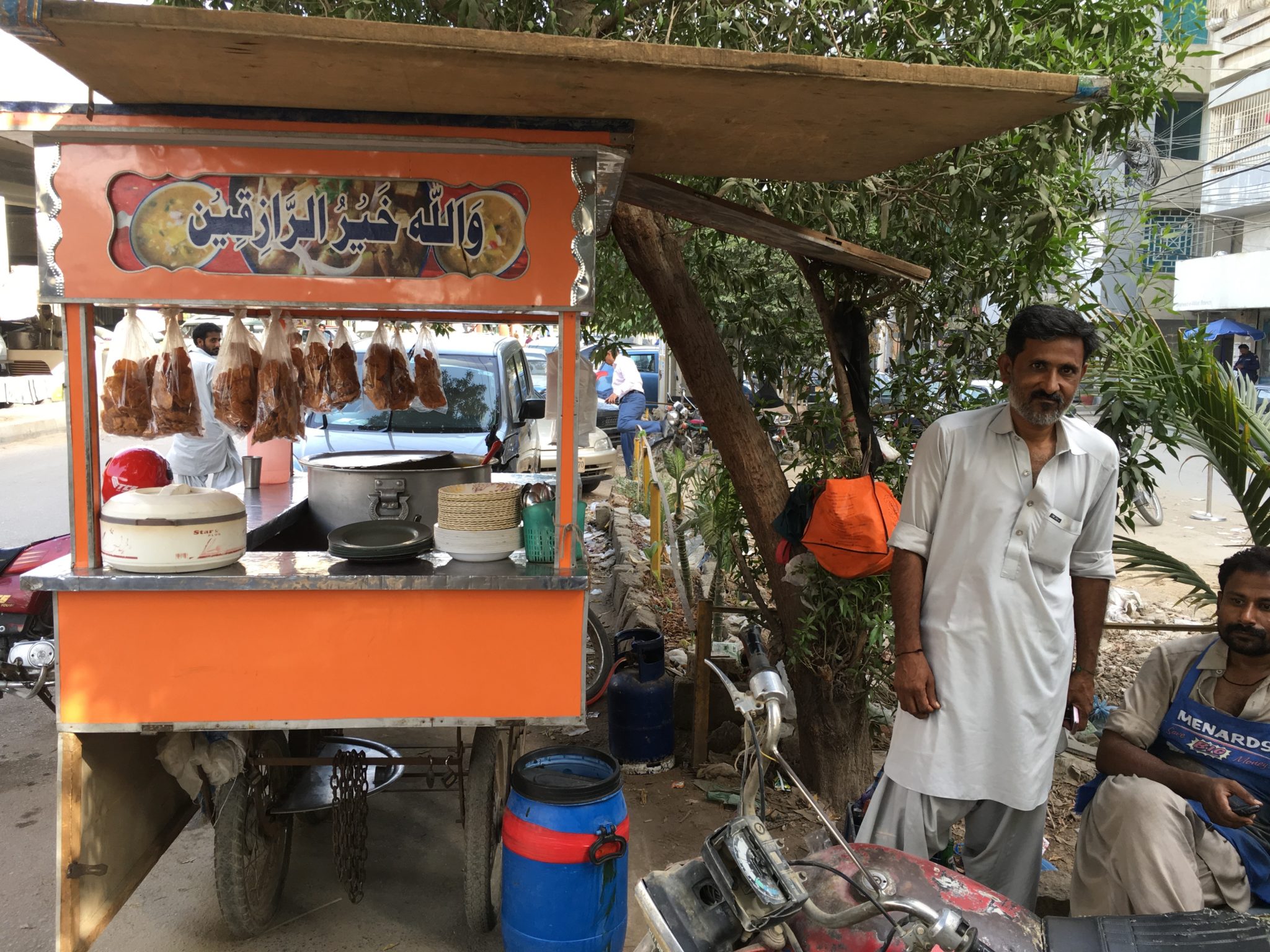
And yet, she thinks it’s worth it. Pakistanis are extremely resilient, in her experience, and she believes the country will ultimately grow in the right direction. ‘If we can play even a tiny role in this process, it would give me great satisfaction.’ Plus, it’s no coincidence that the Netherlands has an embassy in Pakistan. ‘What happens in this region has consequences for the Netherlands. Just think of the production of narcotics, people trafficking, etc. and if we don’t do something about water management, this country will at some point become unliveable, and we’ll have to deal with climate refugees. Last week, in Sindh Province, temperatures exceeded 50⁰, the highest temperature ever recorded anywhere in the world in April. There’s no more water in the soil, yet the population continues to grow.’
As far as terrorist attacks are concerned, things have been quiet in Pakistan for a while. This is good for trade, as entrepreneurs suffer tremendously from the country’s bad image. ‘I always tell them they have to make an effort to include women, because international parties don’t want to trade with a country that oppresses women. This has a motivating effect on people.’
Transgenders
Back at the hotel we’re met by a group of transgenders and gays. This week, Parliament has passed a historic law guaranteeing the basic rights of transgenders. There is a long tradition of transsexuality in Pakistan: transgenders traditionally sing and dance at marriages. On a daily basis, however, their life is not so safe. These young people have made an educational film that they want to show to the Ambassador. The new law is great, but they explain that in practice, a lot of things still have to happen before they become really accepted.
‘Join us tonight at the King’s Day reception,’ says the Ambassador at the end of their short talk. She has to change quickly to be on time for the Orange celebrations. By inviting the transgenders, she’s showing that human rights are high on the Netherlands’ agenda.
A little later, she personally welcomes all her guests, clad in an orange coat made from cloth woven in Pakistan. A colleague hands out red-white-and-blue buttons with the text Keep in touch with the Dutch. The Beemster cheese wins approving glances from the Pakistanis who have sampled it. Male Pakistanis, of course. Here too, you can count the women on the fingers of your two hands. Ardi Stoios-Braken remembers to make a subtle joke about this in her speech.
